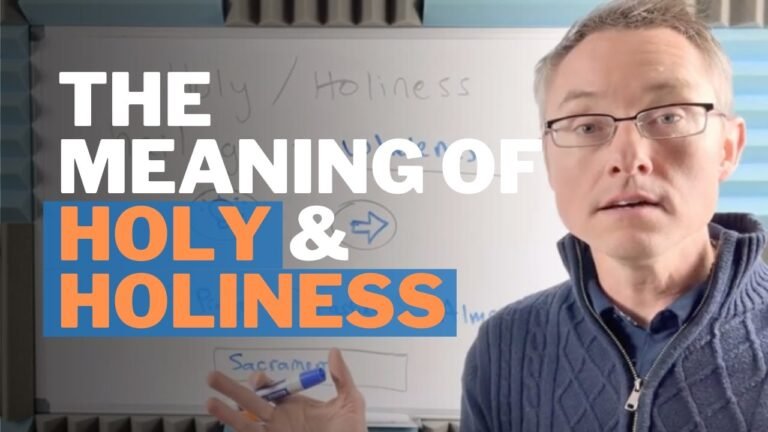Understanding the Definition and Significance of Casting Lots
In ancient times, the practice of casting lots served as a method for decision-making and divination, often seen as a way to seek divine guidance. But what does it mean to cast lots? This age-old technique involves randomly selecting options or making choices through physical means, such as drawing stones or tossing coins. Today, the phrase casting lots is used metaphorically to describe situations where chance plays a significant role in determining outcomes. As we explore its historical significance and modern implications, we uncover the intriguing intersection of fate, choice, and belief that continues to resonate in our lives.
What does casting lots mean in the Bible?
Casting lots, as referenced in the Bible, particularly in the book of Acts, is a practice rooted in ancient traditions where individuals sought divine guidance in making decisions. This method involved using objects, like stones or sticks, that were cast or drawn to determine an outcome. In the context of selecting a new apostle to replace Judas Iscariot, the act of casting lots was seen not as a game of chance, but as a serious appeal to God’s will, reflecting a deep trust in divine intervention.
In biblical times, casting lots was a common practice among the Israelites. It was often employed in significant decisions, such as dividing land or choosing leaders, and was viewed as a way to ensure that the outcome was aligned with God’s purpose. This contrasts sharply with contemporary interpretations that may equate casting lots to gambling, as the ancient practice was imbued with spiritual significance and communal responsibility.
The decision to cast lots for the apostolic appointment underscores the early church’s reliance on God’s sovereignty in guiding their choices. It illustrates a profound understanding that, even in seemingly random acts, God’s will prevails. This practice serves as a reminder for modern believers about the importance of seeking divine direction in their lives, emphasizing faith over mere chance in decision-making.
What is the meaning of casting lots?
To “cast one’s lot” signifies a commitment to a particular group or lifestyle, embracing both the joys and challenges that come with it. This phrase captures the essence of forging deep connections and sharing experiences, whether in friendship, love, or shared values. For instance, when someone decides to join a community of artists and free spirits, they are not only aligning themselves with that way of life but also accepting the unpredictable journey that accompanies it.
In a world filled with choices, casting one’s lot represents a bold decision to invest in a specific path. It involves a willingness to face the uncertainties and triumphs together with others who share similar dreams and aspirations. When she cast her lot with the bohemian crowd, she opened herself up to a vibrant, albeit unpredictable, existence, rich with creativity and camaraderie. This act of allegiance underscores the importance of community and the transformative power of shared experiences.
What was the reason for casting lots for Jesus’ clothes?
During the crucifixion of Jesus, the Roman soldiers cast lots for His clothing, a common practice that allowed them to claim the personal belongings of those they executed. This act not only highlighted the brutality of the event but also fulfilled the prophecy found in Psalm 22:18, which foretold such a division of garments. By casting lots, the soldiers were unwittingly participating in a significant moment that connected the tragic event of the crucifixion with ancient scripture, underscoring the deep layers of meaning woven into this pivotal moment in history.
Unraveling the Ancient Practice of Decision-Making
Decision-making has been an intricate dance of intuition and reason since the dawn of civilization. Ancient cultures, from the Greeks to the Chinese, developed methods that blended philosophy with practicality, emphasizing the importance of deliberation and reflection. They understood that choices shape destinies, leading to the rise and fall of empires. By studying their approaches, we uncover timeless principles that remain relevant today, guiding us through the complexities of modern life. As we navigate our own choices, the wisdom of the past invites us to pause, reflect, and embrace the art of thoughtful decision-making.
The Role of Chance in Spiritual and Cultural Contexts
Chance weaves a fascinating thread through the tapestry of spiritual and cultural contexts, often serving as a catalyst for transformation and introspection. From the serendipity of an unexpected encounter to the randomness of fate, these moments invite individuals to reflect on the significance of their experiences. Cultures worldwide celebrate this unpredictability, incorporating it into rituals, storytelling, and belief systems, suggesting that what appears to be mere coincidence may hold deeper meaning. By embracing chance, people find opportunities for growth, connection, and understanding, ultimately enriching their spiritual journeys and cultural narratives.
Casting Lots: A Historical Perspective on Fate
Throughout history, casting lots has served as a fascinating method of decision-making, often viewed as a way to invoke divine will. This practice, rooted in ancient cultures, spans various civilizations—from the Israelites, who used it to divide land, to the Romans, who cast lots for military and political decisions. The act of casting lots is not merely a game of chance; it reflects deep-seated beliefs about fate, providence, and the human desire to connect with a higher power in moments of uncertainty.
As societies evolved, so too did the interpretation of casting lots. In many cultures, it transitioned from a sacred ritual into a more secular practice, yet its core essence remained intact: the quest for guidance in the face of ambiguity. The symbolism of chance intertwined with destiny has made casting lots a compelling topic in philosophical and theological debates. This transformation highlights the interplay between human agency and the unseen forces that shape our lives, inviting individuals to ponder the extent of their control over their own fates.
Today, casting lots continues to find relevance in various contexts, from modern games of chance to strategic decision-making in business and governance. It serves as a reminder of the age-old belief in serendipity and the unpredictable nature of life. As we navigate an increasingly complex world, the historical practice of casting lots encourages us to embrace uncertainty and consider the broader implications of our choices, ultimately inviting reflection on the delicate balance between free will and destiny.
Significance Beyond Luck: Meaning and Purpose
In a world often governed by chance, the pursuit of meaning and purpose emerges as a powerful antidote to randomness. Individuals who seek significance beyond mere luck cultivate a deeper understanding of their values, passions, and aspirations. This journey fosters resilience, enabling them to navigate life’s uncertainties with a sense of direction and intention. By embracing this quest, people transform challenges into opportunities for growth, reinforcing the belief that their choices shape their destinies.
Moreover, the quest for purpose creates a profound connection between individuals and their communities. When people align their actions with their core values, they contribute to a collective sense of belonging and shared responsibility. This interconnectedness not only enhances personal fulfillment but also inspires others to embark on their own journeys toward significance. In this way, the pursuit of meaning transcends individual experiences, weaving a rich tapestry of shared human stories and aspirations.
Ultimately, recognizing the importance of meaning and purpose elevates our understanding of success. It shifts the focus from fleeting achievements to lasting fulfillment, encouraging a mindset that values growth, connection, and contribution. By prioritizing significance over luck, individuals can navigate the complexities of life with clarity and conviction, paving the way for a future defined by intention and impact.
From Tradition to Today: The Evolution of Casting Lots
Casting lots, an ancient practice rooted in decision-making and divination, has evolved significantly from its early use in cultures like those of the Babylonians and Israelites. Initially a method for seeking divine guidance, this ritual involved casting stones or drawing lots to resolve disputes or determine fate. Over centuries, this practice has transformed, finding its way into modern contexts such as games of chance and even corporate decision-making. Today, while the spiritual undertones may have faded, the essence of casting lots endures as a symbol of randomness and fairness, illustrating humanity’s ongoing quest for clarity amidst uncertainty.
Casting lots, a practice steeped in history and often shrouded in mystery, serves as a powerful reminder of the human quest for guidance and decision-making. By understanding its origins and applications, we can appreciate how this ancient method continues to resonate in modern contexts, offering insights into chance, fate, and the complexities of choice. Embracing the concept of casting lots invites us to reflect on the balance between control and randomness in our lives, enriching our perspective on the decisions we face daily.







